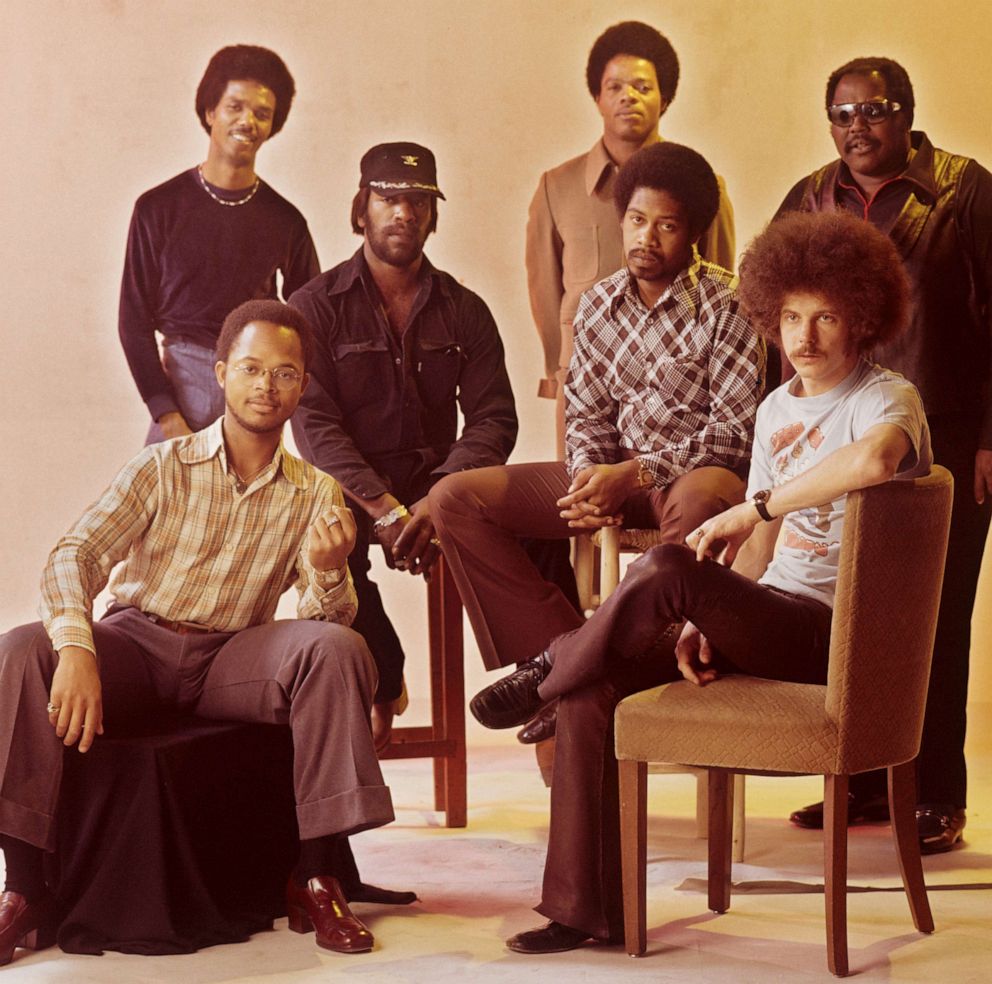It's been 50 years since War’s album “The World is a Ghetto” was released. The album skyrocketed to the top of the charts and came at a time when the music industry was still largely segregated.
War’s music spread messages of inclusion and activism across generations and has had a profound influence on America's culture today, with hits like “Low Rider” and “Why Can't We Be Friends?”
ABC News’ Linsey Davis sat down with War frontman Lonnie Jordan to discuss the band's legacy and how music can create change.

Members of War pose for a photo in Hilversum, Netherlands in 1976.
Gijsbert Hanekroot/Redferns via Getty Images
LINSEY DAVIS: So tell me, back in the 1970s, what were you hoping that people would take away from your music? And has that changed – the takeaway – now?
LONNIE JORDAN: Well, we were always a groove and message kind of group, and nothing's really changed, because our rock 'n' roll fans, you know, they're the ones who inspired us to make this music.
DAVIS: And it worked out.
JORDAN: It worked out. And the people took that as being a part of us. We were one, you know? We're from the streets. They’re from the streets. We just went into the studio. We had the opportunity to go into the studio to make music, and that was an experience alone. Again, we didn't know how to record.
DAVIS: Well, you said that you were one – and you went to No 1. “The World is a Ghetto” went to No. 1 on the charts, and you've subsequently been sampled by the likes of Janet Jackson, DJ Shadow, so many to mention here. But what does it feel like to get that recognition throughout the generations?
JORDAN: Well, as time went by, I felt really honored for people – I didn't know anyone even took the time to even listen to our music. I really didn't know. I didn't even think our music would ever be played on the radio, because it was different from what was happening at the time. You know, and I just figured, well, this ever play? And then when it did play and I heard it, I didn't believe it.
DAVIS: Did you consider your music to be controversial at the time? Curious if you got any backlash.
JORDAN: We did get backlash, you know, as far as the name alone, War. And the fact that our people would ask us, you know, “Why would you use the name War?” And I said, “Well, listen to the music, grooves and messages.” And what it is, I said, “We call ourselves War, because we wage war against wars.” And our message is that we don't shoot bullets. I said, “Our choice of weapons is our musical instruments, and that shoots melodies, rhythms and most of all, harmony.”
DAVIS: Music has often been a catalyst for change, a way to show that you're an activist. Do you think it still has that same power, or do you think that musicians are still using it in that way as from back in the '70s?
JORDAN: Well, without being politicians or talking specifically about the president or anything else in this world or any other politicians or anything that's going on in the world that a lot of people are unhappy about – or even happy about. We don't go there. We just put music to the surroundings of what is going on – lightly, not heavy. We're not that heavy in the politics.
DAVIS: If you were to write a song today, what would it be about?
JORDAN: It would be a happy message. It would basically be about, having it easy in life, about being special, loving yourself and knowing that you exist in this world like anyone else, you know? And loving yourself.
DAVIS: And the funny thing is, “Why Can't We Be Friends?”– still apropos today, 50 years later. So good to have you in studio with us, Lonnie Jordan, and what a privilege and pleasure to have you. Thank you so much.
War's Lonnie Jordan looks back on the 50th anniversary of 'The World is a Ghetto'
Read More
August 19, 2023 at 03:48AM
No comments:
Post a Comment